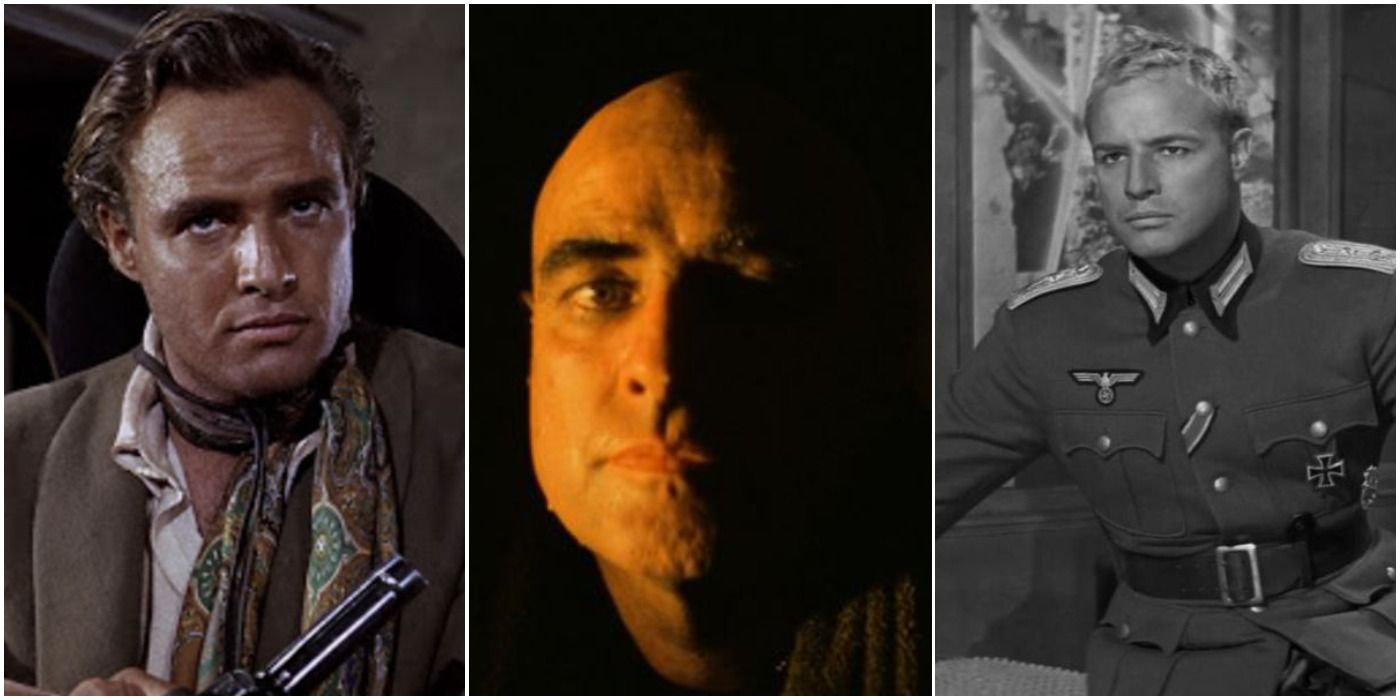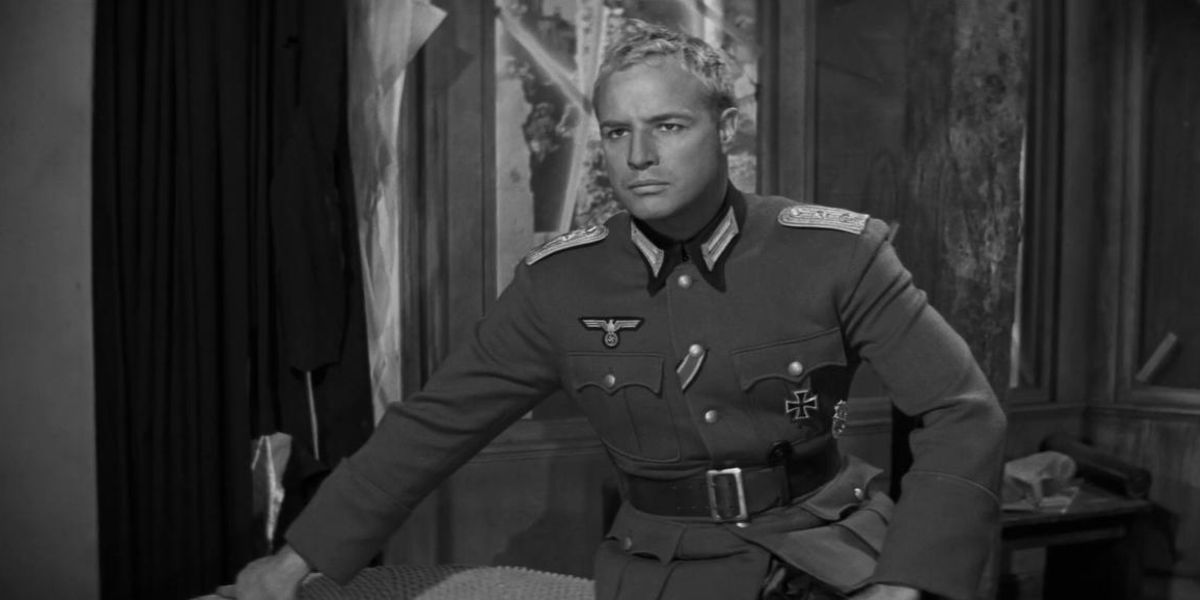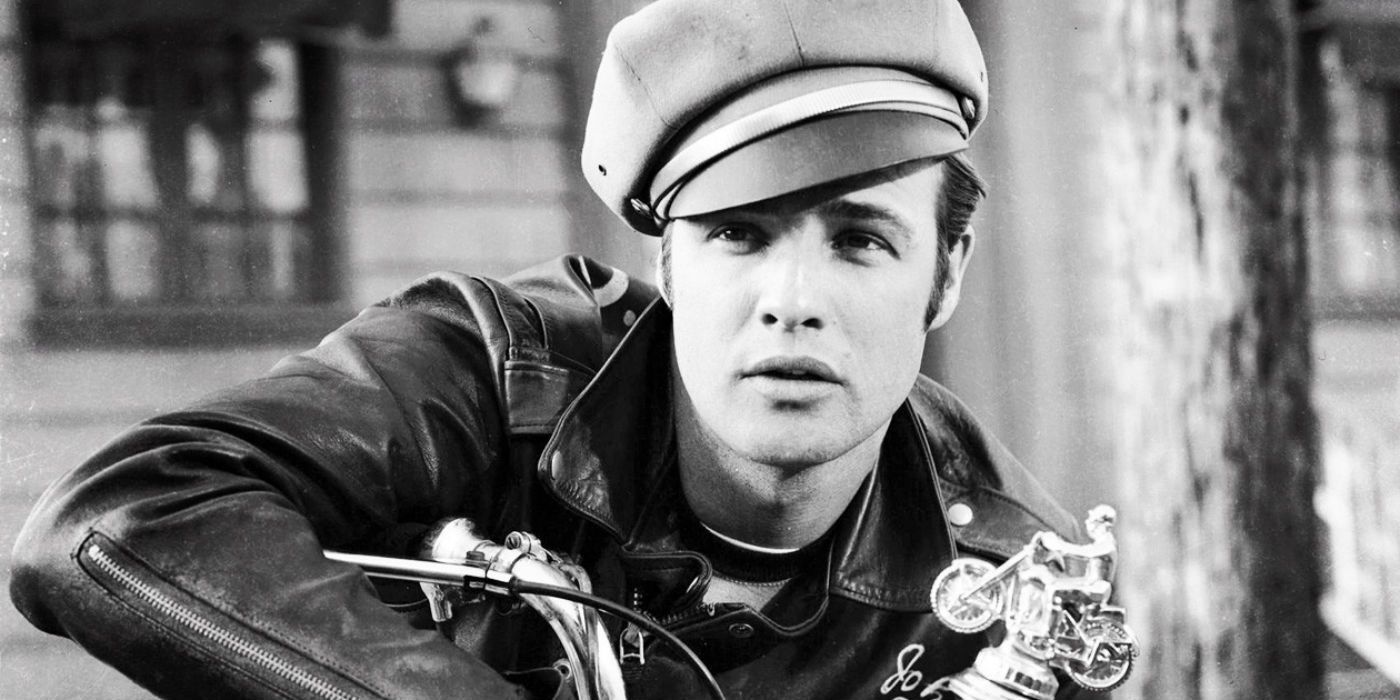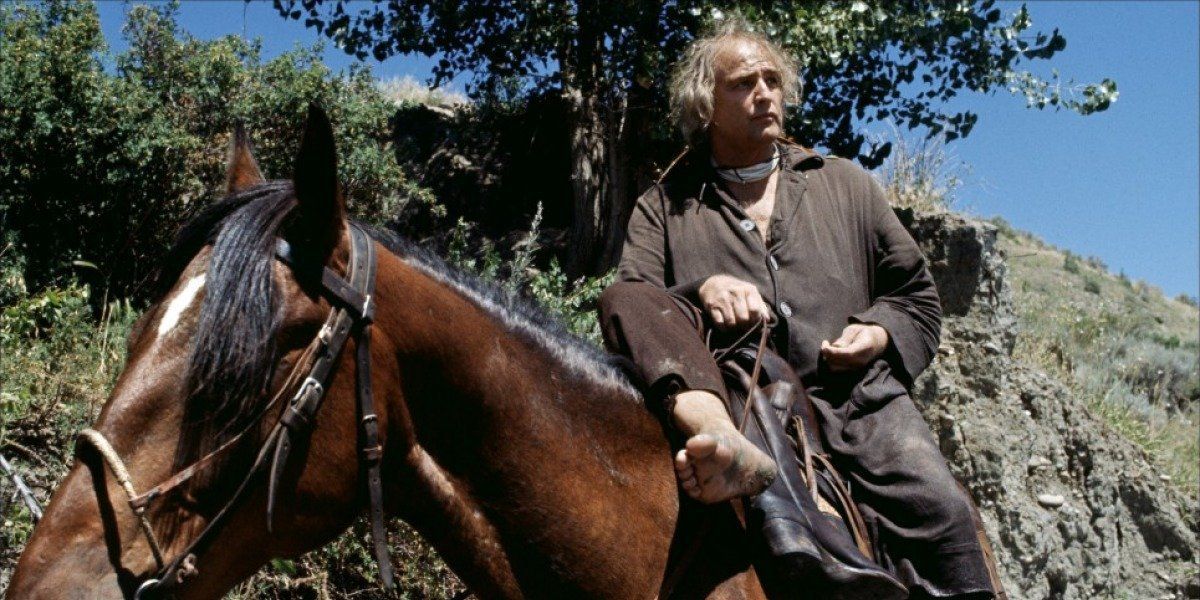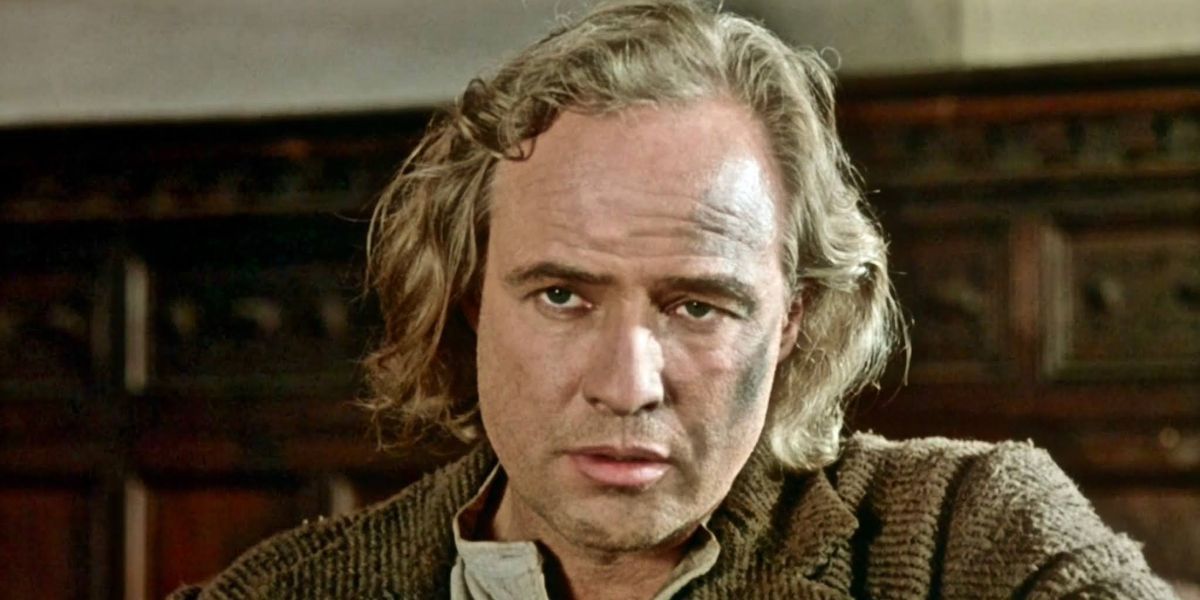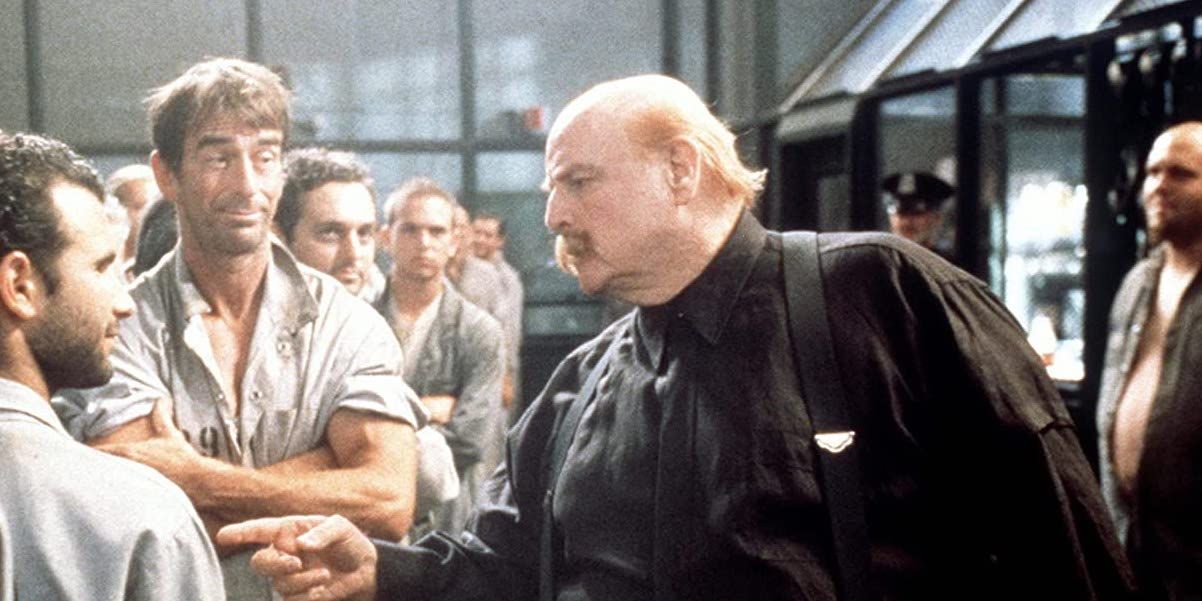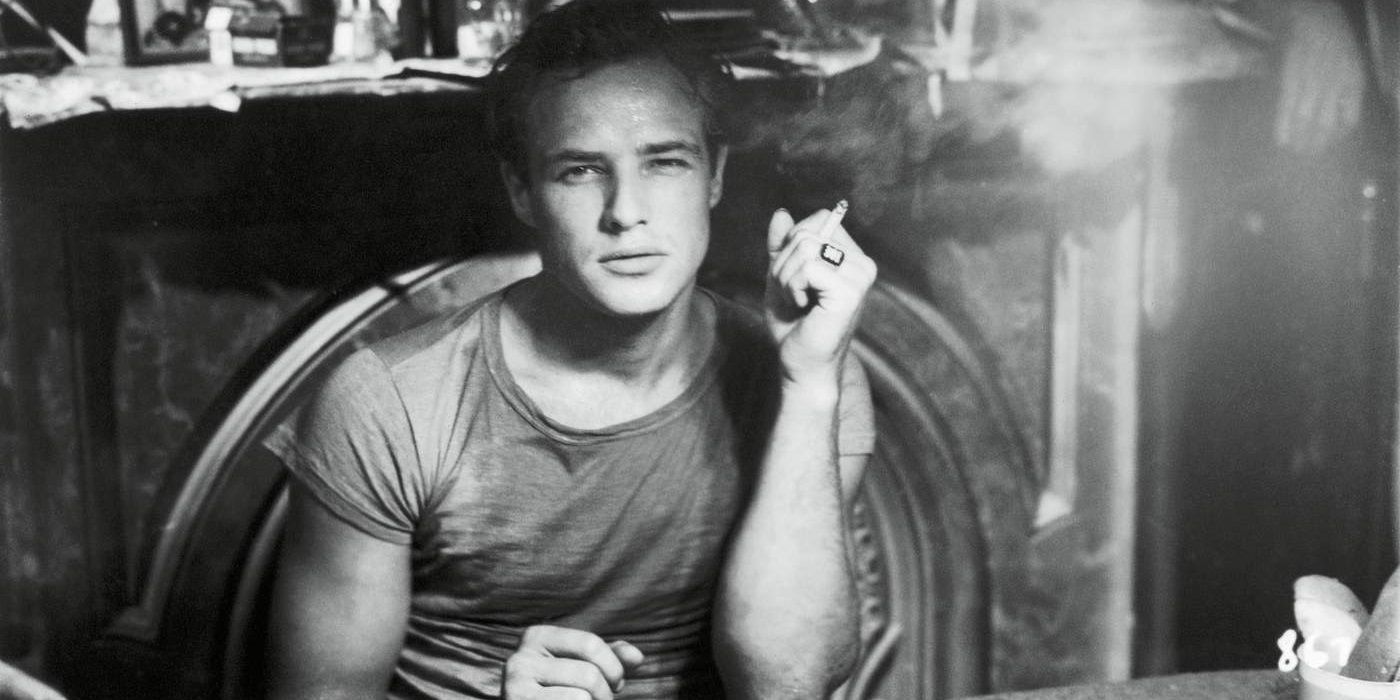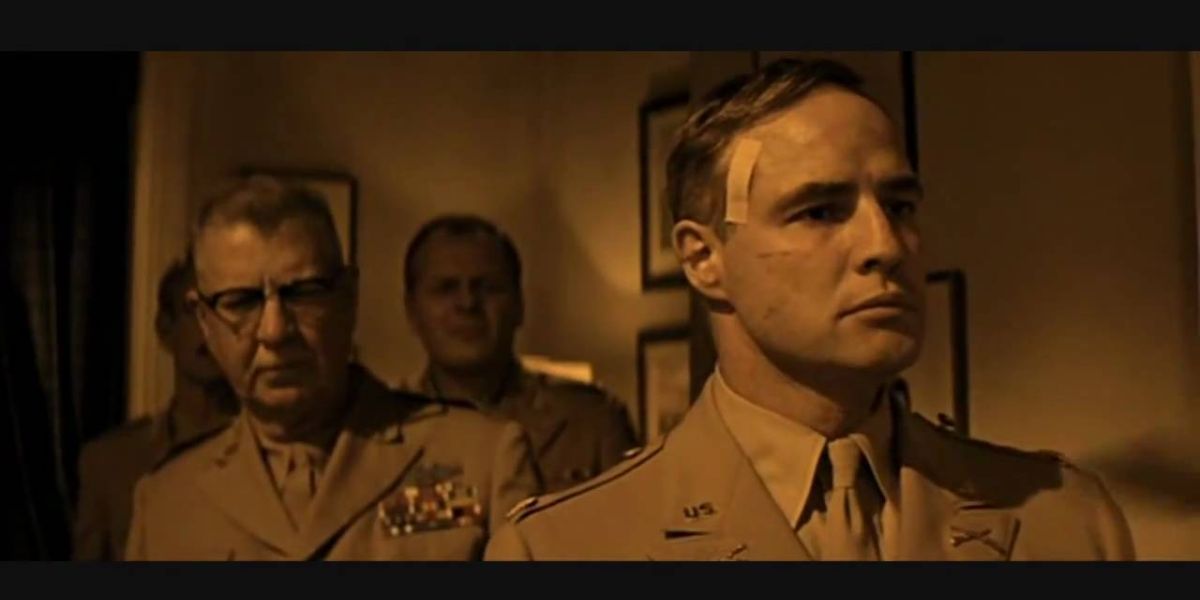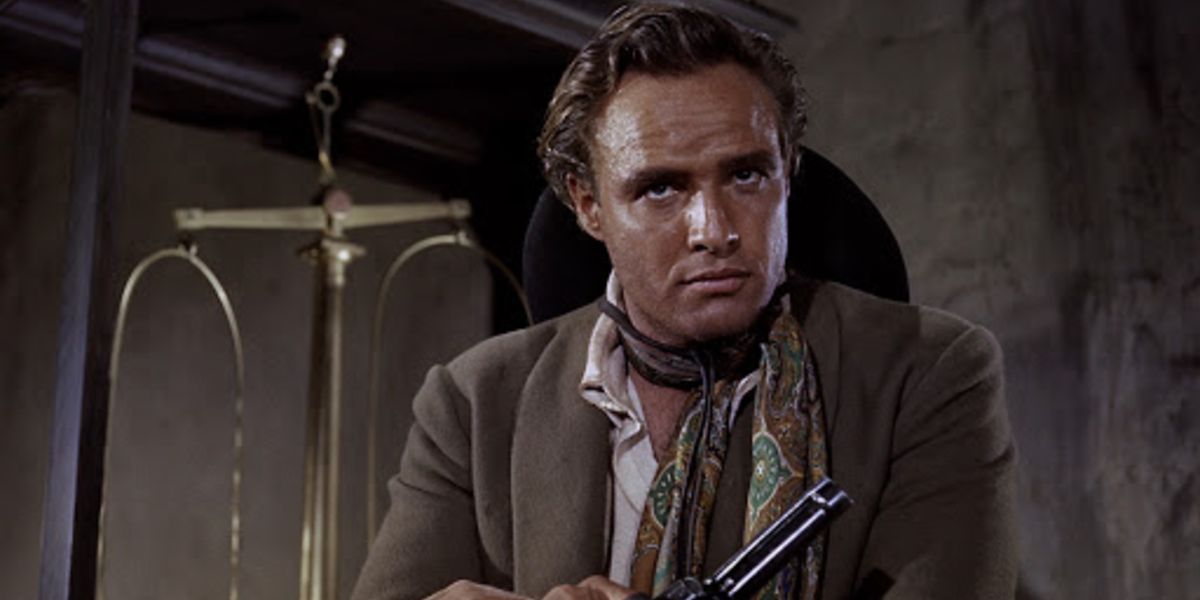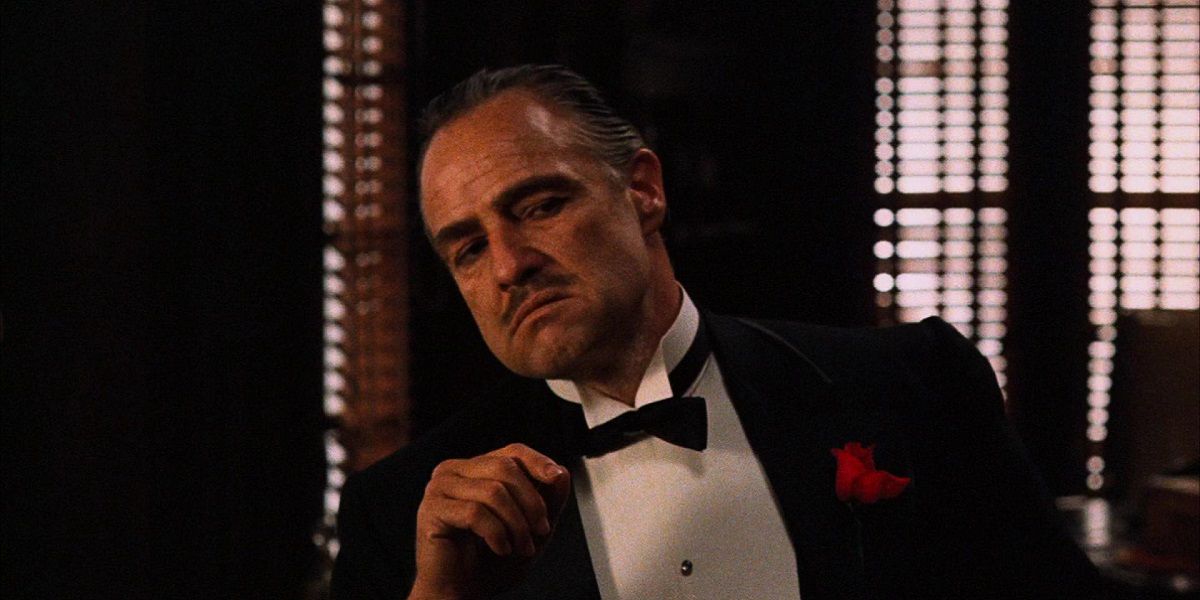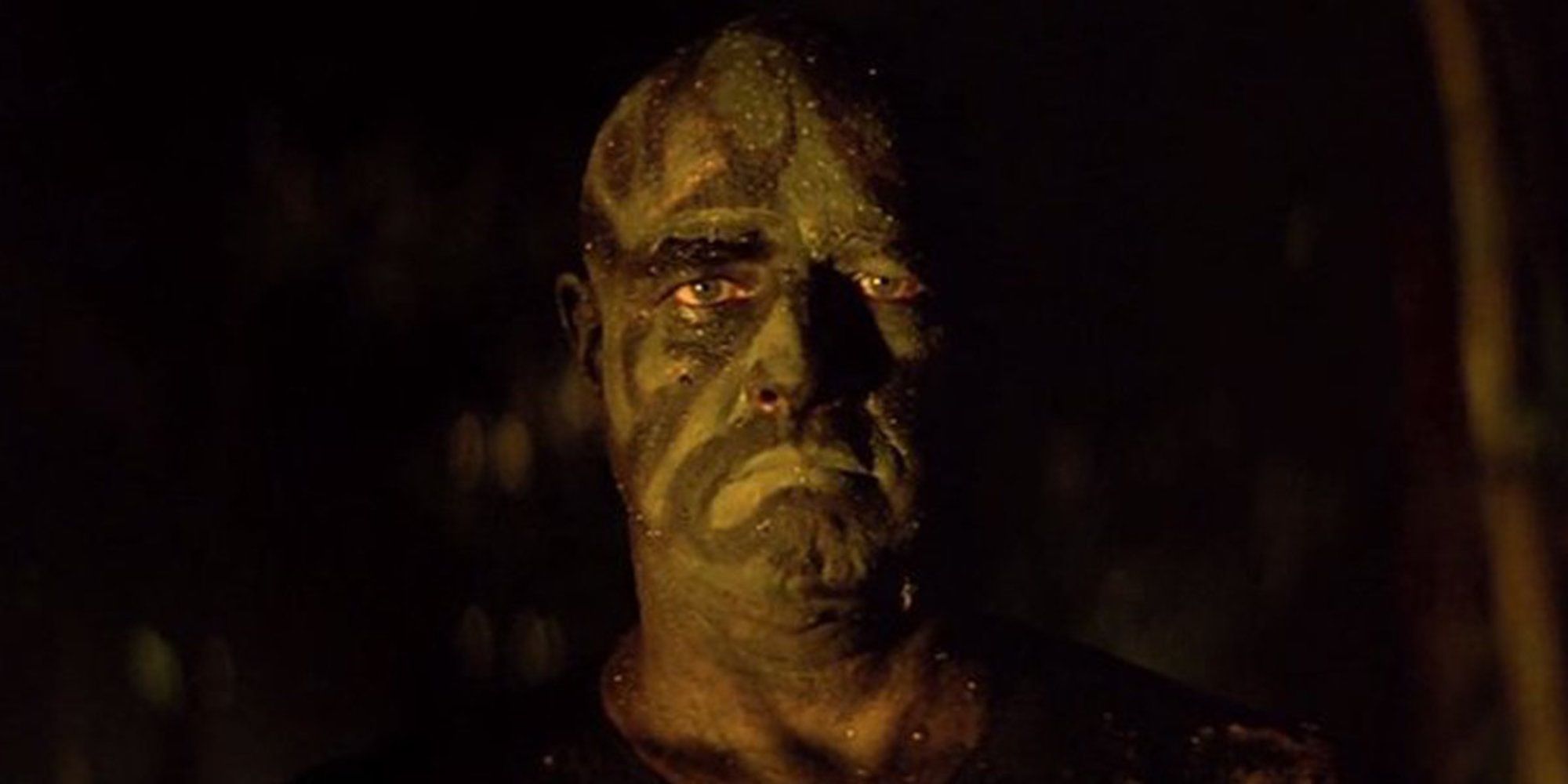Marlon Brando is one of the most iconic and influential actors to ever have graced the silver screen. He dedicated himself to authenticity in his craft from the very beginning and was instrumental in bringing the method-acting technique into the mainstream. Brando brought this dedication and authenticity to his screen debut in the 1950 film, The Men, but it wasn’t until slightly later that his method would begin to entirely change the concept of bringing characters to life.
In 1951, Brando reprised the role of Stanley Kowalski for the film adaptation of Tennessee Williams’ A Streetcar Named Desire, and the intensity of his performance began to pave the way for the actor that he would become. Marlon Brando, the actor, is a formidable character for his legacy alone, however, often the characters he has embodied have been truly intimidating in their own right.
Christian Diestl - The Young Lions (1958)
Also starring Montgomery Clift and Dean Martin, The Young Lions introduced Brando as Christian, a sympathetic German lieutenant during WWII who hopes for prosperity. Christian defies the orders of his superior officer in favor of humanity and refuses to needlessly kill men.
Christian is a pacifist and a soldier, two identities that are in a constant battle with one another, as he becomes disillusioned and struggles to abide by the fundamentals of war. Christian is intimidating in his courage to defy, and while he fulfills his duties as a soldier, he refuses to blindly follow orders.
Johnny Strabler - The Wild One (1953)
In 1953’s The Wild One, Brando plays Johnny Strabler, the leader of the Black Rebel Motorcycle Club, a biker gang that arrives in the small town of Wrightsville and starts to wreak havoc. The movie presents one of Brando’s most iconic lines when asked what he is rebelling against and Johnny replies “Whaddaya got?”
The titular Strabler is overtly intimidating in his control over the gang, and in his quietly brooding reluctance to speak very much, although he doesn't seem as enamored with violence and upheaval as some of his fellow bikers. Strabler is much more concerned with Kathie (Mary Murphy), the Sheriff’s daughter.
Robert E. Lee Clayton - The Missouri Breaks (1976)
The 1976 Western, The Missouri Breaks, stars Brando alongside Jack Nicholson, as Robert E. Lee Clayton. Clayton is an Irish-American bounty hunter whose sarcastic, entirely unorthodox approach to just about everything in the film makes him as intimidating as he is unpredictable.
Everything about Brando’s performance of Clayton is unsettling, from his entirely unstable Irish accent to the way he treats Little Tod. Clayton is fearless and laughs off every threat that comes his way, while constantly relying on an outrageous sense of humor.
Peter Quint - The Nightcomers (1971)
The Nightcomers is a horror/thriller that introduces Peter Quint (Brando), the sinister Irish gardener of a rural English country estate, and it serves as a prequel to the Henry James’ novel, The Turn of the Screw. The movie follows Quint as he befriends the two children of the house and introduces them to torturing animals, and inadvertently, to the practice of sadomasochism.
Ultimately, as horrible as this sounds, Quint does not turn out to be the villain of the film and is merely misguided in his unintentional contribution to the corruption of the children. Quint, however, remains one of Brando’s more disconcerting, if ultimately innocent, characters.
The Swede - Free Money (1998)
In the 1998 comedy Free Money, Marlon Brando plays the corrupt prison warden, Sven 'The Swede' Sorenson, a ruthless character who everyone is afraid of. When two young men, Bud (Charlie Sheen) and Larry (Thomas Haden Church), get The Swede’s twin daughters pregnant, they are forced to marry.
After they all move into the family home, The Swede treats the young men as prisoners and continuously torments them. Among many other things, he attacks the two men with a cattle prod as punishment for blasphemy and smashes through the bedroom door when Bud is found in bed with his new wife.
Stanley Kowalski - A Streetcar Named Desire (1951)
In A Streetcar Named Desire, Brando reprised his Broadway role as Stanley Kowalski in the 1951 film adaptation of the play by Tennessee Williams and transformed his career as a screen actor. The character is intimidating both in its legacy and in its aggressive portrayal of toxic masculinity, and it earned Brando his first Academy Award nomination.
Blanche DuBois describes Stanley as “subhuman,” and he is framed throughout the movie as an animalistic character. Stanley is often loud and violent, shouting and smashing whatever object is on hand on more than one occasion, and this intensity lends to him exhibiting a toxic power, not only over his female counterparts, but over the movie itself.
Major Weldon Penderton - Reflections In A Golden Eye (1967)
Reflections In a Golden Eye focuses on six central characters, one of whom is commander-in-chief Major Weldon Penderton (Marlon Brando). Penderton is a character in an unhappy and toxic marriage with his controlling wife, Leonora (Elizabeth Taylor), and presents one of Brando’s most complex performances.
Underneath Penderton’s unsettling stoicism, he is consumed by both a hatred of his own repressed desires and a hatred of the wife who constantly taunts and emasculates him. Penderton’s internal battle bubbles beneath the surface throughout, until he lashes out at the climax of the film, with disastrous results.
Rio - One-Eyed Jacks (1961)
In 1961 Marlon Brando starred in the first and only film that he directed, One-Eyed Jacks. This Western followed the bank robber Rio (Brando), who is betrayed by his partner and sent to prison. After five years, Rio is released from prison and sets out on a quest for revenge.
Rio is consumed by a determination to kill the man who betrayed him. Rio speaks of his time in prison with such intense graphic detail that the viewer is convinced that this quest for revenge is justified. Although Rio is given an opportunity at love and potential happiness, he turns it down in favor of exacting his revenge.
Vito Corleone - The Godfather (1972)
In 1972, Francis Ford Coppola’s The Godfather presented Brando with a role that both revived his career, and lead to his second Academy Award. Although Brando refused the award, the role itself had a lasting positive effect on his career.
The Godfather sees Brando as the exceedingly intimidating Vito Corleone, a mafia boss and patriarch of the Corleone family. Don Vito Corleone is one of Brando’s most memorable and iconic roles, and the domineering authority of the character had a long-lasting influence on the mafia film subgenre.
Colonel Kurtz - Apocalypse Now (1979)
In Francis Ford Coppola’s Apocalypse Now, Brando transformed into the elusive Colonel Kurtz. Kurtz’s presence dominates the entire film, although he does not appear on screen until towards the end. Colonel Kurtz is rumored to be experiencing psychosis and to have become an almost divine figure at his post in Cambodia. As a result, Willard is sent to assassinate him.
When Willard finally meets Kurtz in a dark temple, Kurtz’s face is intermittently illuminated, adding to his menace and framing him as a demigod, as he delivers a speech on the horrors of war. This provided yet another unsettling, intimidating, and completely iconic performance that would come to be one of Brando’s most memorable.

